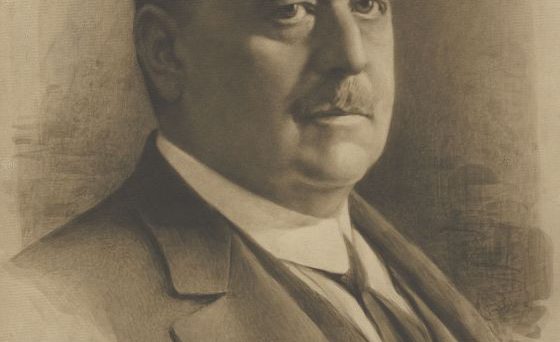Dr. Baron Marcell Madarassy-Beck of Madaras
Dr. Marcell Madarassy-Beck, Baron (Budapest, 11 February 1873. - Mauthausen, 19 January 1945): lawyer, banker.
His life
In 1911 he was made a baronet. His wife was Jolán Weiss, daughter of Manfréd Weiss's brother Berthold Weiss, who died of influenza in 1935.
At the end of March 1944, he was arrested by the Germans, taken to the Kistarcsa internment camp and deported to Mauthausen, where he died.

His professional activity
Hungarian Clearing and Exchange Bank Ltd.
From 1897 he was director of the Hungarian Bank of Settlement and Exchange, and from 1913 he was vice-president and general manager. He played a leading role in economic life at the end of the dualism era and later in the Horthy era. After his father's death, he was President and CEO of the Institute from 1924 to 1944, and General Adviser of the Hungarian National Bank.
Sources

Born: 11.02.1873.
Place of birth: Budapest
Date of death: 1945.01.19.
Place of death: Mauthausen
Occupation: lawyer, banker
Parents: Miksa Madarassy-Beck, Malvin Netter
Spouses: Jolán Weiss
Children: Marietta
Author: by Radnai Márton
Dr. Baron Marcell Madarassy-Beck of Madaras
Dr. Marcell Madarassy-Beck, Baron (Budapest, 11 February 1873. - Mauthausen, 19 January 1945): lawyer, banker.
His life
In 1911 he was made a baronet. His wife was Jolán Weiss, daughter of Manfréd Weiss's brother Berthold Weiss, who died of influenza in 1935.
At the end of March 1944, he was arrested by the Germans, taken to the Kistarcsa internment camp and deported to Mauthausen, where he died.

His professional activity
Hungarian Clearing and Exchange Bank Ltd.
From 1897 he was director of the Hungarian Bank of Settlement and Exchange, and from 1913 he was vice-president and general manager. He played a leading role in economic life at the end of the dualism era and later in the Horthy era. After his father's death, he was President and CEO of the Institute from 1924 to 1944, and General Adviser of the Hungarian National Bank.
